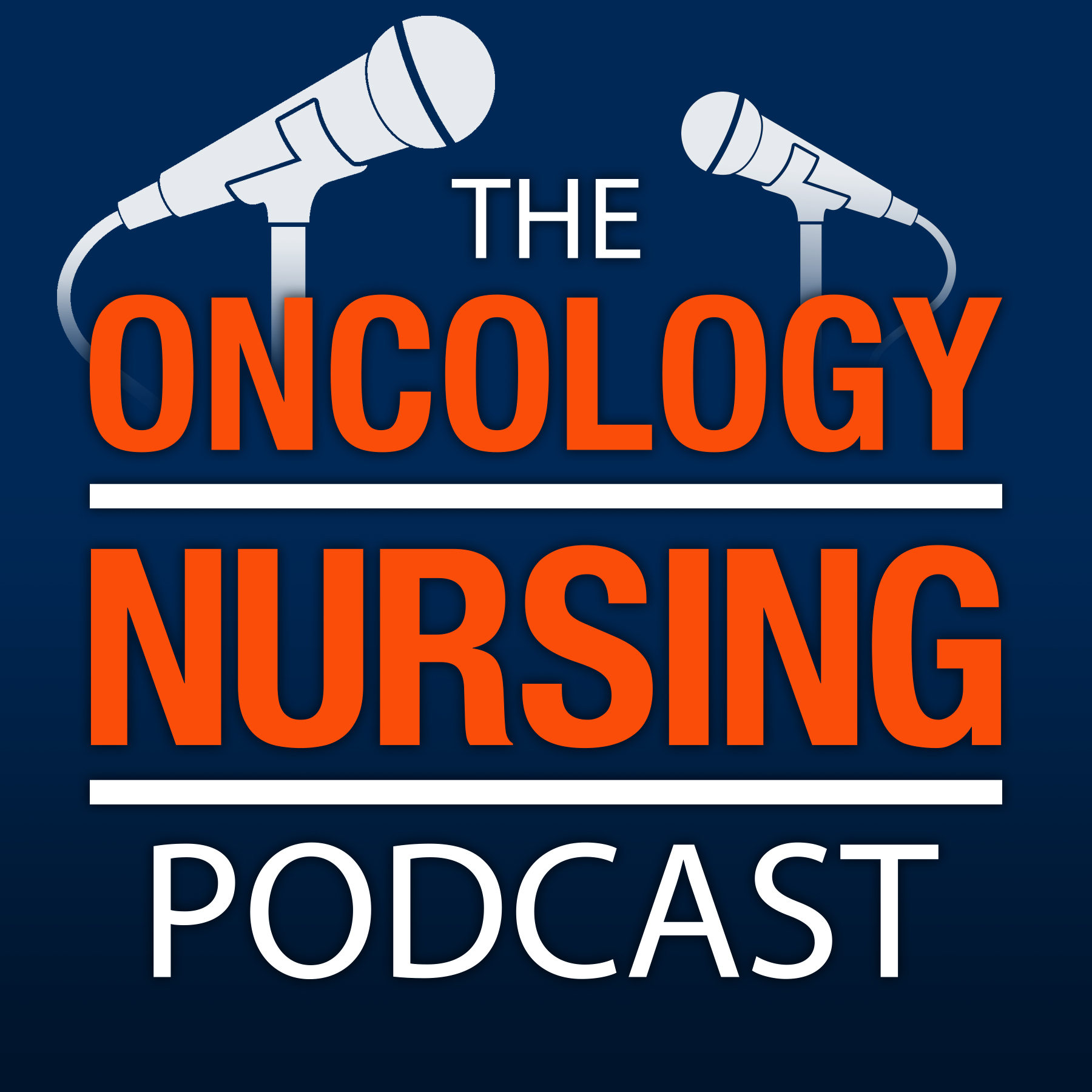
Episode 244: Cancer Symptom Management Basics: Cardiovascular Complications

The Oncology Nursing Podcast
Shownotes Transcript
“When I draw the interprofessional team for the management of cardio-oncology patients, I always place nurses in the center of it, besides the patient, because nurses are the eyes and ears of interprofessional care 24 hours a day,” ONS member Anecita Fadol, PhD, FNP-BC, FAANP, FAAN, FHKAN, associate professor at the University of Texas MD Anderson Cancer Center in Houston, told Jaime Weimer, MSN, RN, AGCNS-BC, AOCNS®, oncology clinical specialist at ONS, during a conversation about getting to “the heart of the matter” of symptom management for the cardiovascular complications of cancer therapies. You can earn free NCPD contact hours after listening to this episode and completing the evaluation linked below. This episode is part of a series about cancer symptom management basics. We’ll add a link to future episodes in the episode notes after the next episode airs.
Music Credit: “Fireflies and Stardust)” by Kevin MacLeod
Licensed under Creative Commons by Attribution 3.0
Earn 1 contact hour of nursing continuing professional development (NCPD) by listening to the full recording and completing an evaluation at myoutcomes.ons.org by January 27, 2025. The planners and faculty for this episode have no relevant financial relationships with ineligible companies to disclose. ONS is accredited as a provider of NCPD by the American Nurses Credentialing Center’s Commission on Accreditation.
Learning outcome: The learner will report an increase in knowledge related to cardiovascular complications associated with today’s cancer treatments.
Episode Notes
Complete this evaluation for free NCPD).
Oncology Nursing Podcast Episode 193: How Social Determinants of Health Affect Cardio-Oncology Survivorship)
ONS Voice articles:
Nursing Considerations for ICI-Related Myocarditis)
Advanced Practice Nurses Are at the Heart of Patient Care in Cardio-Oncology)
Cardio-Oncology Program Monitors Heart Toxicities Throughout Survivorship)
Further Research Can Help Nurses Balance Cardiovascular Conditions With Cancer Treatments)
Clinical Journal of Oncology Nursing articles:
Immune Checkpoint Inhibitor–Related Myocarditis: Recognition, Surveillance, and Management)
Cardio-Oncology: A Continually Evolving Subspecialty in Oncology Nursing)
Cardio-Oncology Health Disparities: Social Determinants of Health and Care for Black Breast Cancer Survivors)
Oncology Nursing Forum article: Mitigating Cardiovascular Dysfunction Across the Cancer Continuum)
ONS book: Cancer Basics (Third Edition))
ONS course: Cancer Basics)
Journal of the American Heart Association article: Immune Checkpoint Inhibitor Myocarditis: Pathophysiological Characteristics, Diagnosis, and Treatment)
Circulation articles:
Clinical Features, Management, and Outcomes of Immune Checkpoint Inhibitor–Related Cardiotoxicity)
Immune Checkpoint Inhibitor–Associated Myositis)
Cardio-Oncology: Vascular and Metabolic Perspectives: A Scientific Statement From the American Heart Association)
New England Journal of Medicine article: Fulminant Myocarditis With Combination Immune Checkpoint Blockade)
Lancet Oncology article: Cardiovascular Toxicities Associated With Immune Checkpoint Inhibitors: An Observational, Retrospective, Pharmacovigilance Study)
Journal of the American College of Cardiology article: Cardiovascular Disease Risk Among Cancer Survivors: The Atherosclerosis Risk In Communities (ARIC) Study)
Guideline for the Management of Patients With Non–ST-Elevation Acute Coronary Syndromes)
Advancing the Cardiovascular Care of the Oncology Patient)
2022 American Heart Association/American College of Cardiology/Heart Failure Society of America Guideline for the Management of Heart Failure)
European Society of Cardiology Guidelines on Cardio-Oncology)
Joint National Committee Guidelines for the Management of Hypertension in Adults)
Attend the Cardio-Oncology Multidisciplinary Practice Virtual Environment) on February 13, 2023.
To discuss the information in this episode with other oncology nurses, visit the ONS Communities).
To provide feedback or otherwise reach ONS about the podcast, email [email protected]).
Highlights From Today’s Episode
“The most commonly reported cardiovascular toxicities can be classified into five main categories: 1. Cancer treatment-induced hypertension; 2. Cardiomyopathy, left ventricular dysfunction, or heart failure; 3. Myocarditis; 4. Vascular toxicity; and 5. Arrhythmias and QTc prolongation. These cardiovascular toxicities can be caused by the different anti-cancer agents.” Timestamp (TS) 01:46
“Cardio-oncology is more complex than the straightforward cardiology practice. Because in terms of the cardiovascular complications, these symptoms can overlap. But on the other hand, it’s a very interesting area of practice because, especially as a nurse, it’s like you are a detective, looking into a case and trying to find out what is the main etiology.” TS 23:50
“Nurses have a critical role in identification, monitoring, and management of these treatment-related cardiovascular complications, both in the inpatient setting and the outpatient setting with our cancer survivors. So, a nurse should remember in nursing practice, before administering anticancer treatments. . . a comprehensive cardiovascular history and a full cardiovascular assessment should be performed.” TS 30:27
“When I have to draw the interprofessional team for the management of cardio-oncology patients, I always place nurses in the center of it, besides the patient. Because nurses are the eyes and the ears of the interprofessional care who is seeing the patient 24 hours a day. And early recognition—nurses can do it and monitor the response and all the other symptoms.” TS 36:42
“Nurses are very critical in the management of these patients. Nurses are the experts in terms of doing patient teaching because we have an intimate relationship with patients. In terms of the baseline cardiovascular disease in terms of patient teaching, it is very important for nurses to teach the patient aggressive management of the known cardiac risk factors. . . because these are the ones that could cause cardiovascular complications later on when patients are receiving anticancer treatments.” TS 39:05